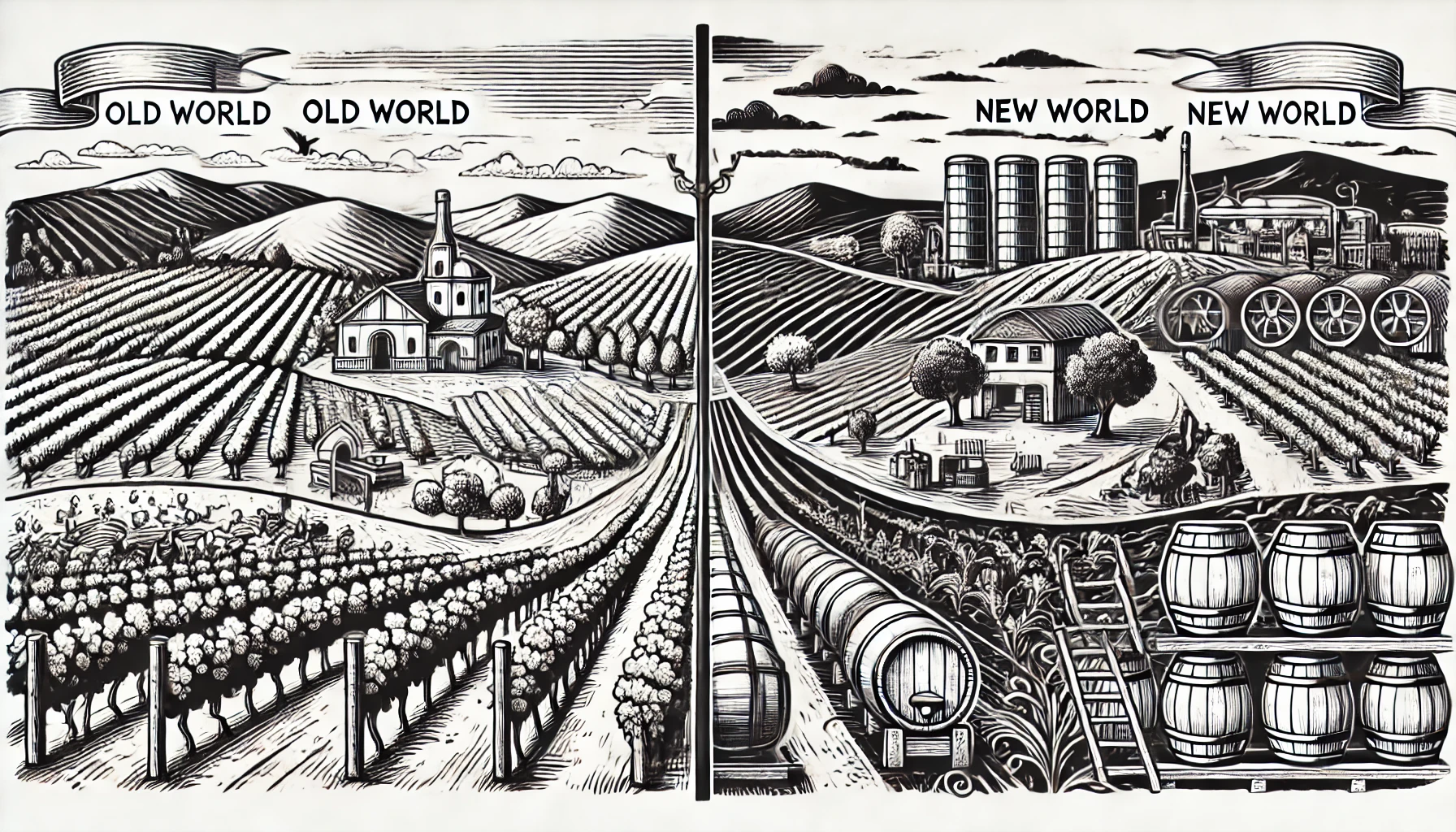
In the context of wine, the terms Old World and New World refer to the geographic origin of the wine, but they also encapsulate broader stylistic differences in winemaking traditions.
Old World wines come from regions with long-established winemaking traditions, primarily in Europe. The most famous Old World wine-producing countries include France, Italy, Spain, Germany, and Portugal. These regions have centuries, if not millennia, of winemaking history. Old World wines are typically associated with a more restrained, elegant style, focusing on subtlety, terroir expression, and tradition. The climate in these regions tends to be cooler, which often results in wines with higher acidity and lower alcohol levels. Old World wines are also more likely to showcase earthy, mineral, or savory characteristics, with fruit flavors being more restrained.
In contrast, New World wines are produced in regions that started developing significant winemaking industries in the past few centuries. These regions include the United States, Australia, New Zealand, Chile, Argentina, and South Africa. New World wines are often associated with a bolder, fruit-forward style, with riper flavors and higher alcohol levels due to the generally warmer climates in these regions. Winemakers in the New World also tend to experiment more with different techniques and grape varieties, focusing on innovation and modern practices rather than strictly adhering to tradition.
Emphasis on Terroir
One of the key differences between these wines is the emphasis on terroir. Old World winemakers often highlight the concept of terroir, the environmental factors that influence the wine, whereas New World wines are more likely to be labeled by grape variety, such as Cabernet Sauvignon or Chardonnay, with less emphasis on where the grapes were grown.
Ultimately, the distinction between Old World and New World is both geographic and stylistic, with each offering unique characteristics and experiences for wine lovers to explore.
Neugierig auf weitere Weintermini und spannende Einblicke? Besuchen Sie unseren Wine Wiki Bereich und entdecken Sie grundlegende Weinbegriffe sowie Expertentipps!